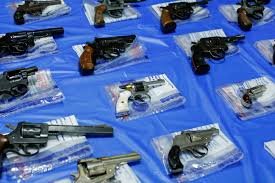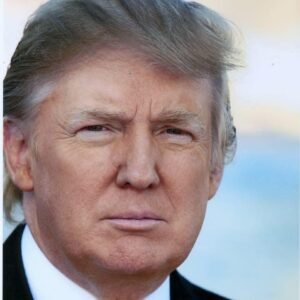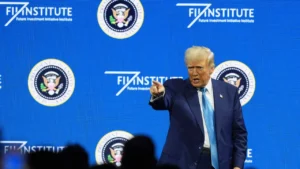Supreme Court strikes down NY gun law restricting concealed carry in major Second Amendment case

The Supreme Court on Thursday has struck down a New York law that placed strict restrictions on carrying concealed firearms in public for self defense, finding its requirement that applicants seeking a concealed carry license demonstrate a special need for self-defense is unconstitutional.
In a 6-3 ruling, the Supreme Court reversed a lower court decision upholding New York’s 108-year-old law limiting who can obtain a license to carry a concealed handgun in public. Proponents of the measure warned that a ruling from the high court invalidating it could threaten gun restrictions in several states and lead to more firearms on city streets.
Justice Clarence Thomas delivered the majority opinion for the ideologically divided court, writing that New York’s “proper-cause requirement” prevented law-abiding citizens from exercising their Second Amendment right, and its licensing regime is unconstitutional.
The constitutional right to bear arms in public for self-defense is not ‘a second-class right, subject to an entirely different body of rules than the other Bill of Rights guarantees,'” Thomas wrote. “We know of no other constitutional right that an individual may exercise only after demonstrating to government officers some special need. That is not how the First Amendment works when it comes to unpopular speech or the free exercise of religion. It is not how the Sixth Amendment works when it comes to a defendant’s right to confront the witnesses against him. And it is not how the Second Amendment works when it comes to public carry for self-defense.”
Writing in dissent for the liberal wing of the court, Justice Stephen Breyer noted the rise in gun violence in the U.S. and ubiquity of firearms, and warned that states working to pass more stringent firearms laws will be “severely” burdened by the court’s decision.
“In my view, when courts interpret the Second Amendment, it is constitutionally proper, indeed often necessary, for them to consider the serious dangers and consequences of gun violence that lead states to regulate firearms,” Breyer wrote. “The Second Circuit has done so and has held that New York’s law does not violate the Second Amendment. I would affirm that holding.”
The ruling marks the first expansion of gun rights since 2008, when the Supreme Court recognized that the SeconNew York officials and the Biden administration, which urged the Supreme Court to uphold the law, warned the justices during oral arguments in November that invalidating the measure could have a domino effect, jeopardizing not only the states’ restrictions, but also others that limit public carry in places where people congregate, such as airports, arenas, churches and schools.
Some of the justices appeared concerned about how a broad ruling could impact restrictions imposed on places where large amounts of people gather. Roberts, for example, questioned whether a state or city could ban firearms at football stadiums or places where alcohol is served, while Justice Amy Coney Barrett asked about banning guns in “sensitive places,” such as Times Square on New Year’s Eve.
In a concurring opinion, Justice Samuel Alito criticized Breyer’s dissent for recounting recent mass shootings..
President Biden said in a statement he is “deeply disappointed by the decision,” and again urged states to enact changes to their laws to curb gun violence.
“This ruling contradicts both common sense and the Constitution, and should deeply trouble us all,” he said.
The New York permitting law at the crux of the dispute dates back to 1913 and requires residents seeking a license to carry a gun outside the home to demonstrate a “proper cause” to obtain one, which state courts have said is a “special need for self-protection.”
New York Governor Kathy Hochul, a Democrat, criticized the Supreme Court’s decision, saying on Twitter that it was “outrageous that at a moment of national reckoning on gun violence, the Supreme Court has recklessly struck down a New York law that limits those who can carry concealed weapons.”
New York City Mayor Eric Adams said the court’s ruling will “put New Yorkers at further risk of gun violence.” He pledged to conduct a “comprehensive review” of the approach to defining places where carrying firearms is banned, and to review the application process to ensure only those who are qualified can obtain a license to carry.
New York officials and the Biden administration, which urged the Supreme Court to uphold the law, warned the justices during oral arguments in November that invalidating the measure could have a domino effect, jeopardizing not only the states’ restrictions, but also others that limit public carry in places where people congregate, such as airports, arenas, churches and schools.







